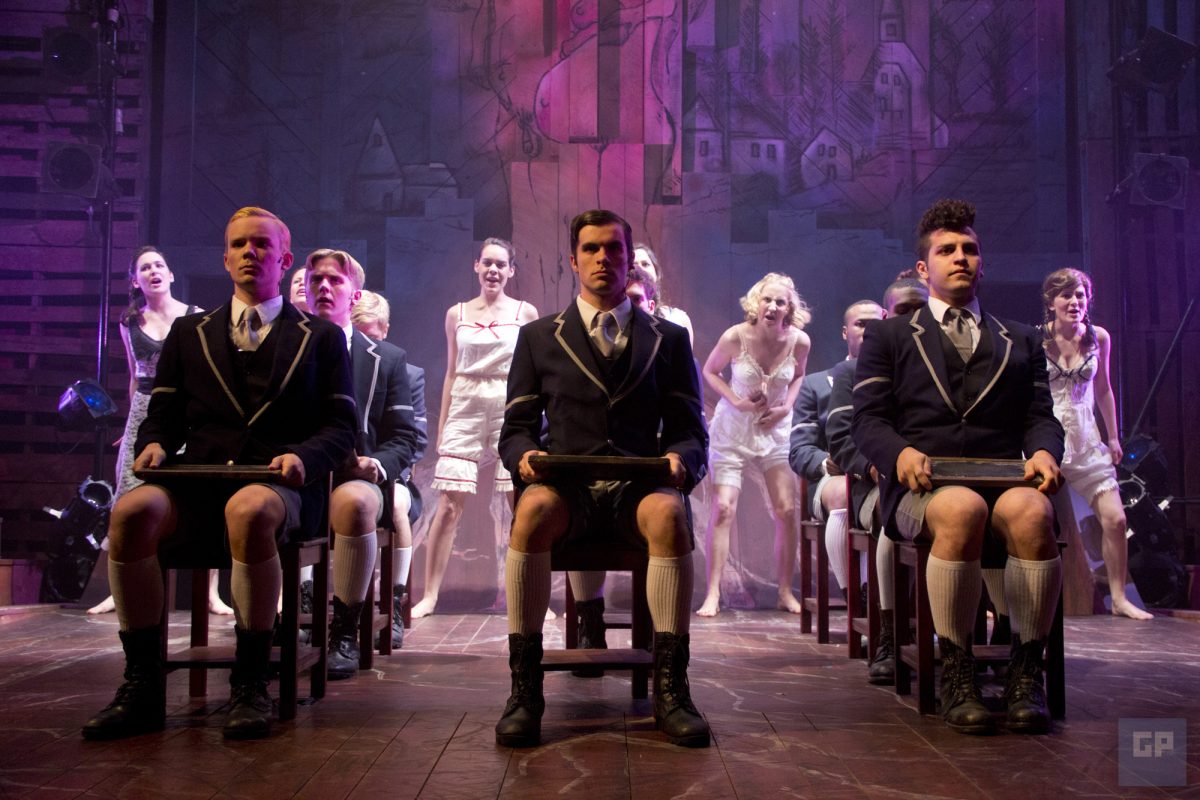The Master of Fine Arts degree in Lighting Design is a terminal degree whose purpose is to train designers for the professional theatre and entertainment industry. The program is structured to develop an understanding of lighting aesthetics, technology, design and research techniques, theatre history/dramatic literature, as well as business skills required for survival in the professional theatre world. We place emphasis on the collaborative and developmental design process and on a working knowledge of the specific requirements in different genres of live performance: theatre, musical theatre, opera, dance, and non-traditional performance.
The core of the curriculum is the Master Class, a weekly seminar for all of the lighting designers in the program. Supplementing this course are special topic classes, which address specific genres such as lighting for Dance, Opera, and Non-Traditional Performance, as well as complex technical problems that arise with certain types of scenery. We also offer a course in The History of Lighting Design to give students a sense of where they fall in the arc of this profession, and Business Practices for Lighting Designers, which will alert coming graduates to the real-life skills that are necessary for the profession. This program includes many production-design assignments at the CRT as well as opportunities to work as design interns at nearby regional theatres. Most students in this program create the principal lighting design for as many as four fully mounted Studio Works and Main Stage CRT productions during their three years of residency. One Main Stage design during the third year will serve as the student’s official MFA final project. The department also encourages graduate students (often with financial support) to attend and participate in such organizations as USITT and Young Designers’ Forum, as well as the Gilbert Hemsley Internship program, as bridges into the professional world.
Technological Requirements: All Design/Tech MFA students must have a laptop that meets the department’s minimum requirements.

COURSE OF STUDY
A minimum of three years of full-term resident graduate study is required.A minimum of 60 graduate credits is required.
All M.F.A. students follow The Graduate School’s “Plan B” (no thesis), however, a specially assigned “MFA Project” involving a Mainstage CRT production is required during the final year.
The following is a list of required and recommended Dramatic Arts courses you will take in order to complete your MFA in Lighting Design. This list evolves, so please contact us if you have specific questions.
First Year
Fall Semester
Studies in Lighting Design: Master Class
Studies in Lighting Design: History of Lighting
Investigation of Special Topics: Lighting Seminar
Spring Semester:
Studies in Lighting Design: Master Class
Lighting Design: Dance
Investigation of Special Topics: Lighting Seminar
Second Year:
Fall Semester:
Studies in Lighting Design: Master Class
Investigation of Special Topics: Lighting Seminar
Lighting Design: Opera
Lighting Design: Non-Traditional Performance
Spring Semester:
Studies in Lighting Design: Master Class
Investigation of Special Topics: Lighting Seminar
Lighting Design: Business Practices
Third Year
Fall Semester
Studies in Lighting Design: Master Class
Lighting Design: Single-Set Plays
Investigation of Special Topics: Lighting Seminar
Spring Semester
Studies in Lighting Design: Master Class
Investigation of Special Topics: Lighting Seminar
MFA Project, (3 to 6 Cr.)
Additional
In addition to the courses listed above, students are encouraged to select elective courses from scenic design, costume design, sound design and other areas of interest.
General Requirements for all graduate designers:
DRAM 5130- Introduction to Graduate Studies in Stage Design
DRAM 5132- Survey of 20th Century Stage Design